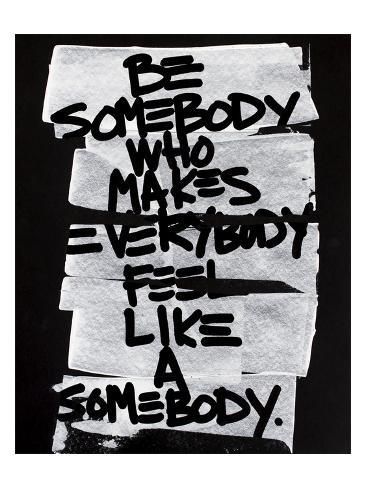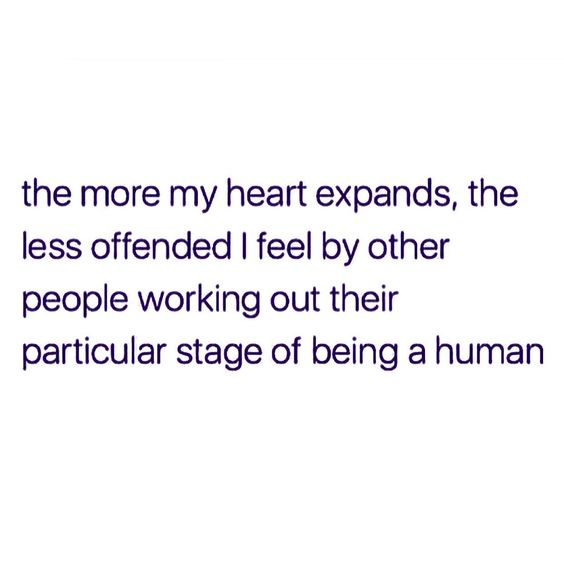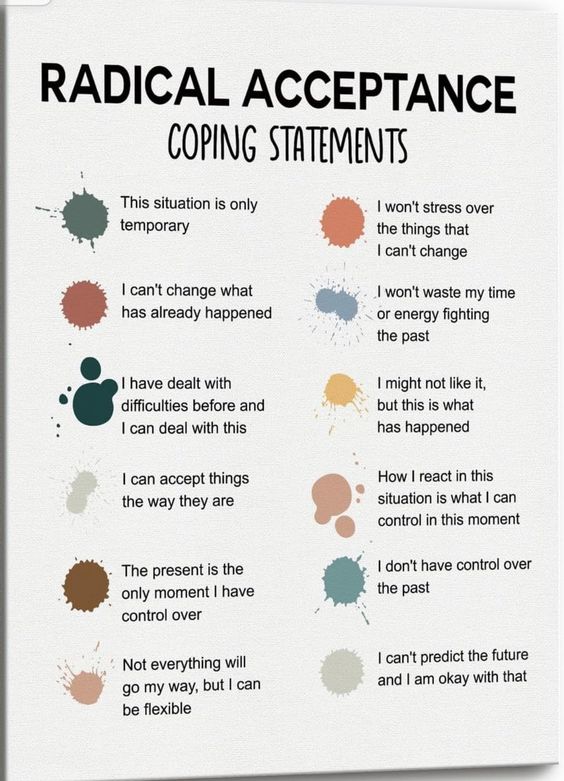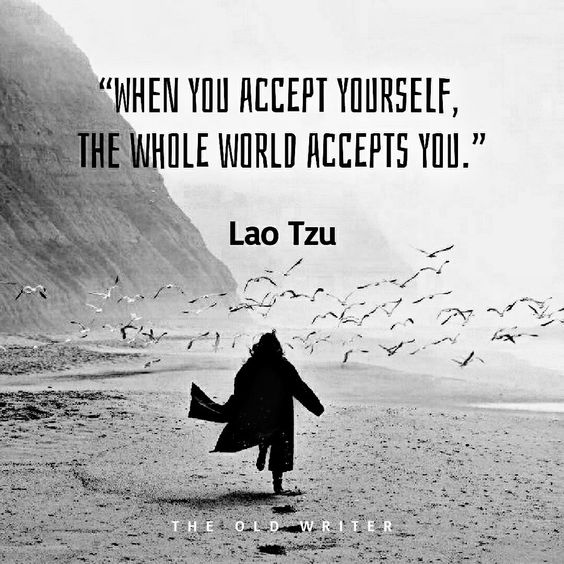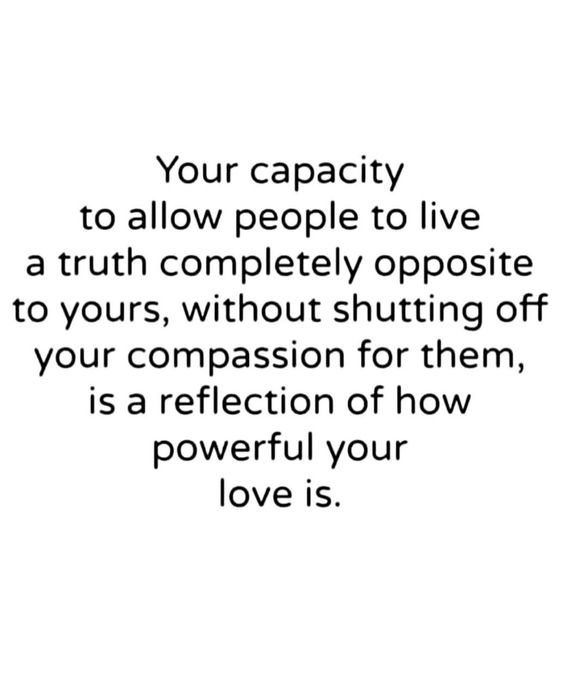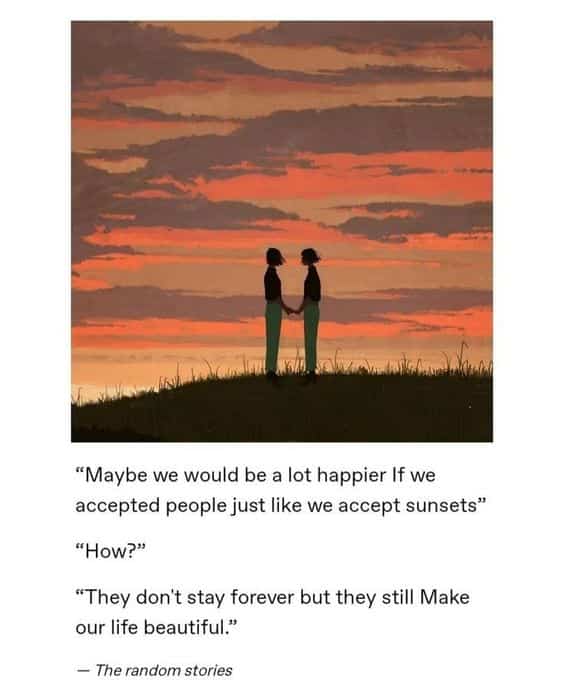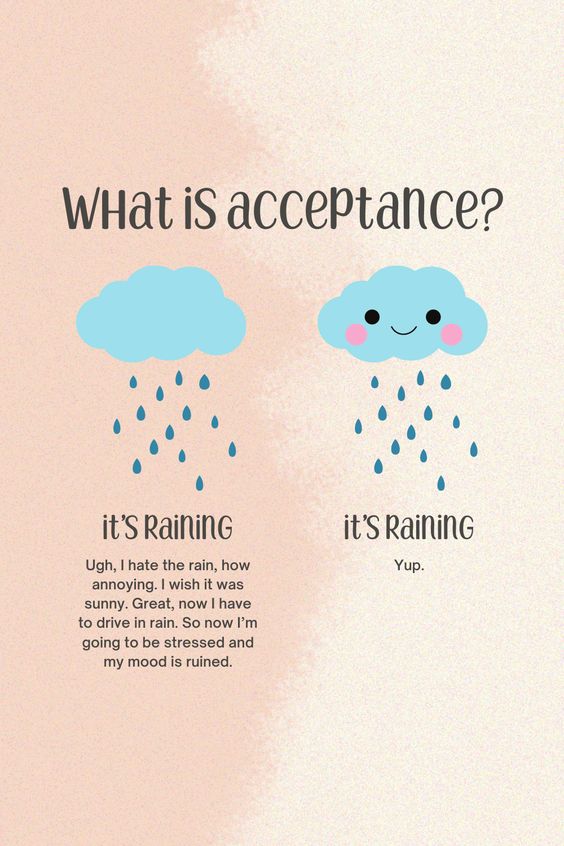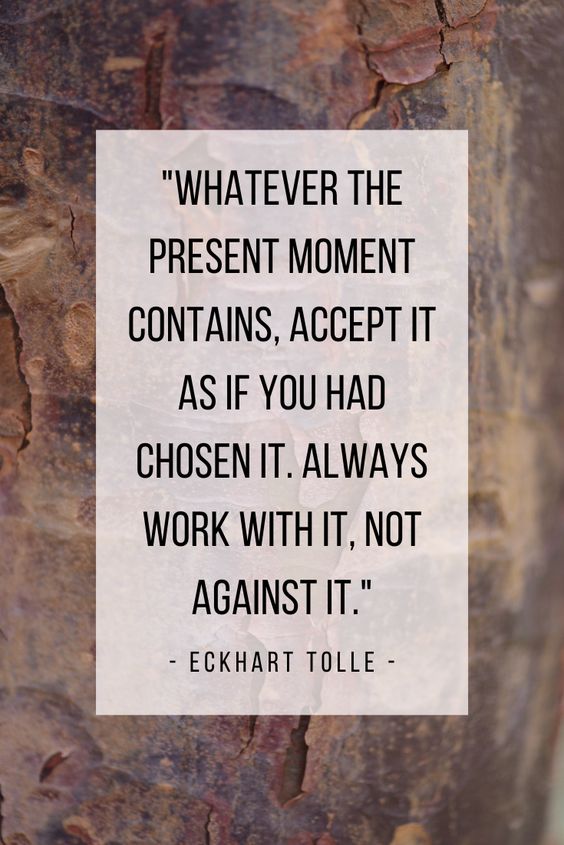“If you are injured and in pain, the path to mental peace can be traversed in a single step: Simply accept the pain as it arises, while doing whatever you need to do to help your body heal. If you are anxious before giving a speech, become willing to feel the anxiety fully, so that it becomes a meaningless pattern of energy in your mind and body. Embracing the contents of consciousness in any moment is a very powerful way of training yourself to respond differently to adversity. However, it is important to distinguish between accepting unpleasant sensations and emotions as a strategy—while covertly hoping that they will go away—and truly accepting them as transitory appearances in consciousness. Only the latter gesture opens the door to wisdom and lasting change. The paradox is that we can become wiser and more compassionate and live more fulfilling lives by refusing to be who we have tended to be in the past. But we must also relax, accepting things as they are in the present, as we strive to change ourselves.”
Sam Harris, Waking Up (Page 149)
Kiese Laymon, Heavy (Page 26)“‘I think I want to lose weight. Can you help me? I be sweating too much when I try to talk to people I don’t want to be sweaty around.’
‘You mean girls, Kie?’
‘I guess I mean girls.’
‘If someone doesn’t like you for you,’ you said, ‘they are not worth sweating around. Save your sweat for someone who values it.'”
“[The patient] was sure that if he worked hard enough, suffered long enough, or (failing that) at least if he were to be rescued by me, then Nirvana could be his. He can bear his pain for a while if only someday, someway, he will be able to reach a state of blissful perfection, a time when he will have no more conflicts, anxieties, or uncertainties. As I come toppling down off the pedestal on which he has placed me, he is horrified to learn that enlightenment does not provide perfection. Instead, it simply offers the pedestrian possibility of living with the acceptance of imperfection.”
Sheldon B. Kopp, If You Meet Buddha On The Road, Kill Him! (Page 134)
“There is much in life we cannot control, with death as the ultimate example of this. We will experience illness and physical pain. We will go through separations with people. We will face failures from our own mistakes and the nasty malevolence of our fellow humans. And our task is to accept these moments and even embrace them, not for the pain but for the opportunities to learn and strengthen ourselves. In doing so, we affirm life itself, accepting all of its possibilities.”
Robert Greene, The Daily Laws (Page 449)
“Remember this: The next time you’re trying to craft a glow up story that is compelling to others, ask yourself why you are still waiting for their approval. The answer, almost always, is that you still do not have your own.”
Brianna Wiest, The Mountain Is You (Page 173)
“By accepting people, by understanding and if possible even loving them for their human nature, we can liberate our minds from obsessive and petty emotions. We can stop reacting to everything people do and say. We can have some distance and stop ourselves from taking everything personally. Mental space is freed up for higher pursuits. Once we feel the exhilarating power from this new attitude, we will want to take it as far as possible.”
Robert Greene, The Daily Laws (Page 399)
“The closer people are to the truth, the more tolerant they are of the mistakes of others.”
Leo Tolstoy, A Calendar of Wisdom (Page 258)
“Almost always, when we look deep into our souls, we can find there the same sins which we blame in others. If we do not find a particular sin in our soul, then we should look more closely, and we will find even worse sins there.”
Leo Tolstoy, A Calendar of Wisdom (Page 224)
“Loss is one of our deepest fears. Ignorance and pretending don’t make things any better. They just mean the loss will be all the more jarring when it occurs.”
Ryan Holiday, The Daily Stoic (Page 349)
“Devastation—that feeling that we’re absolutely crushed and shocked by an event—is a factor of how unlikely we considered that event in the first place. No one is wrecked by the fact that it’s snowing in the winter, because we’ve accepted (and even anticipated) this turn of events. What about the occurrences that surprise us? We might not be so shocked if we took the time to consider their possibility.”
Ryan Holiday, The Daily Stoic (Page 347)
